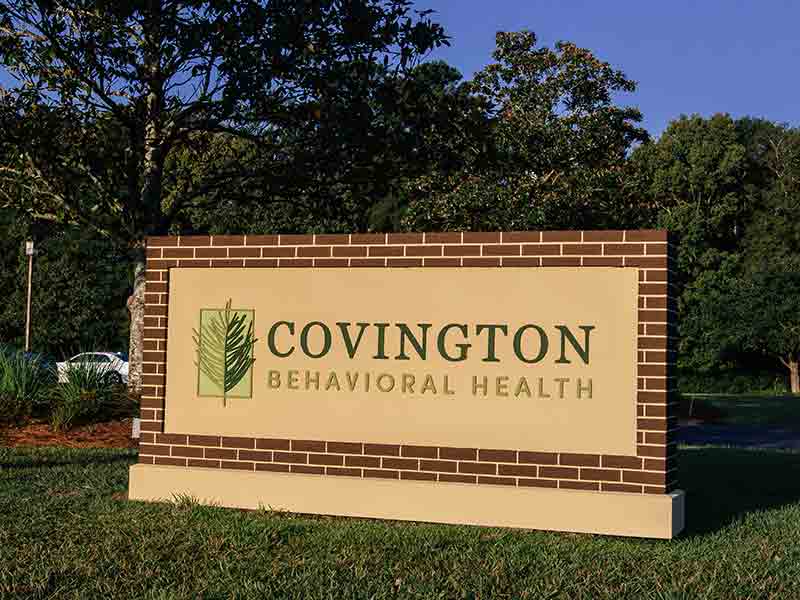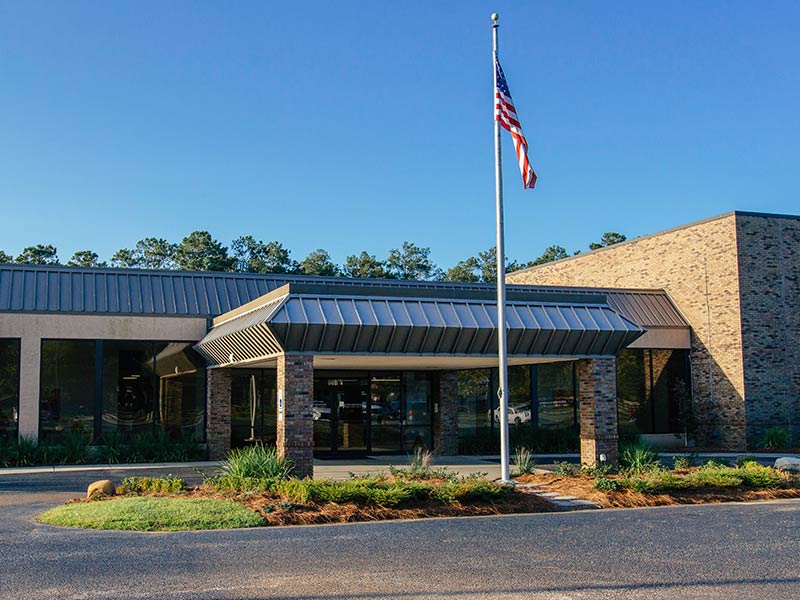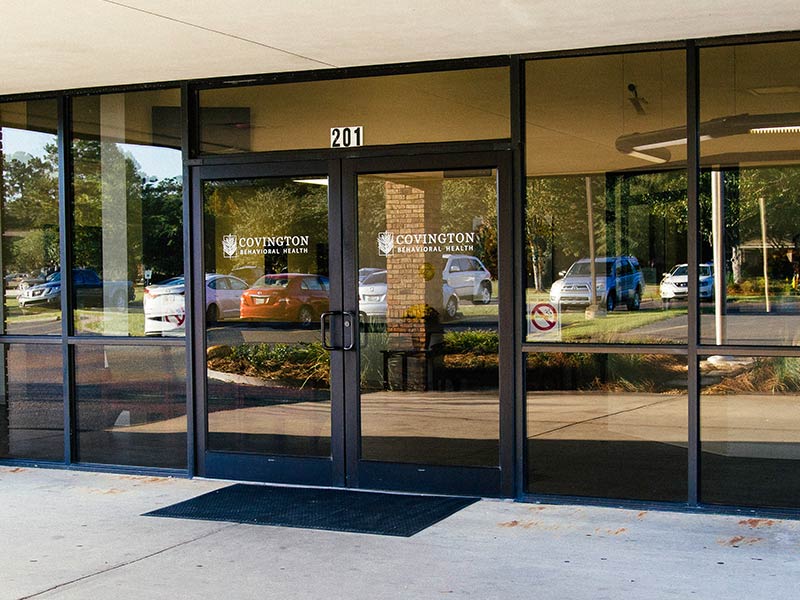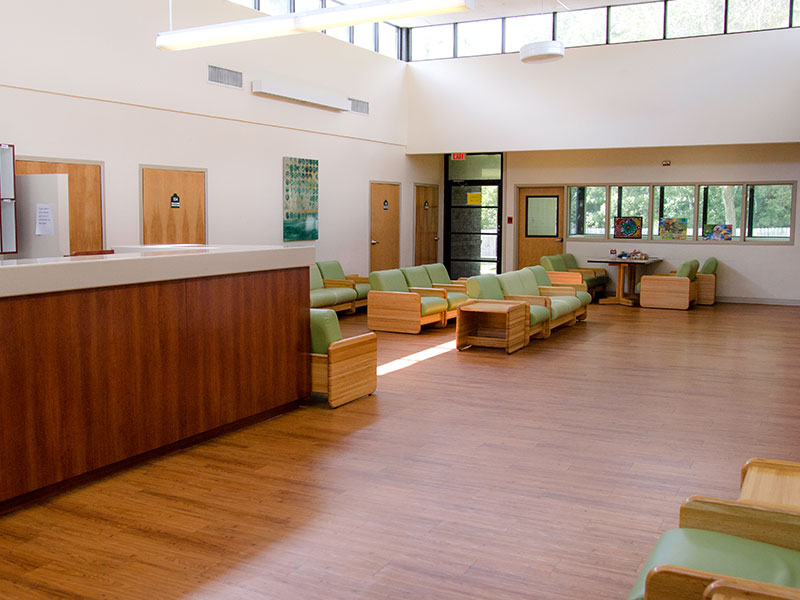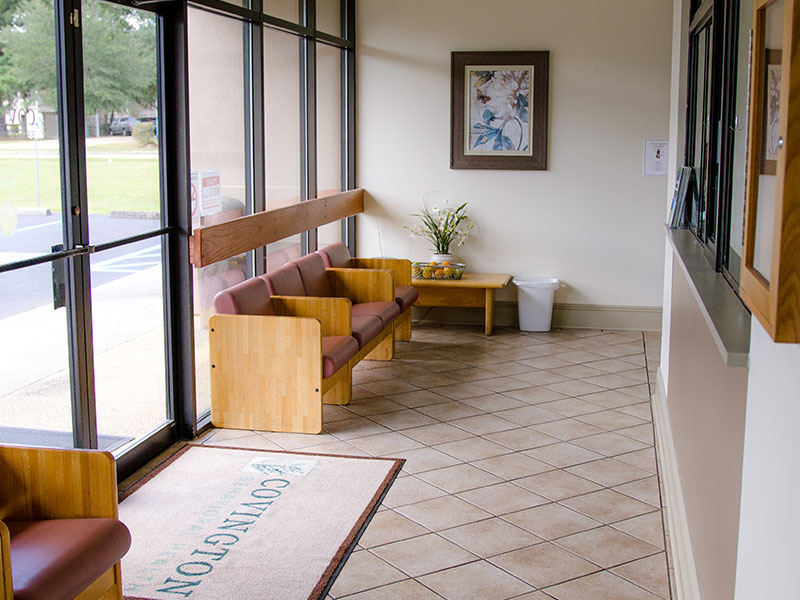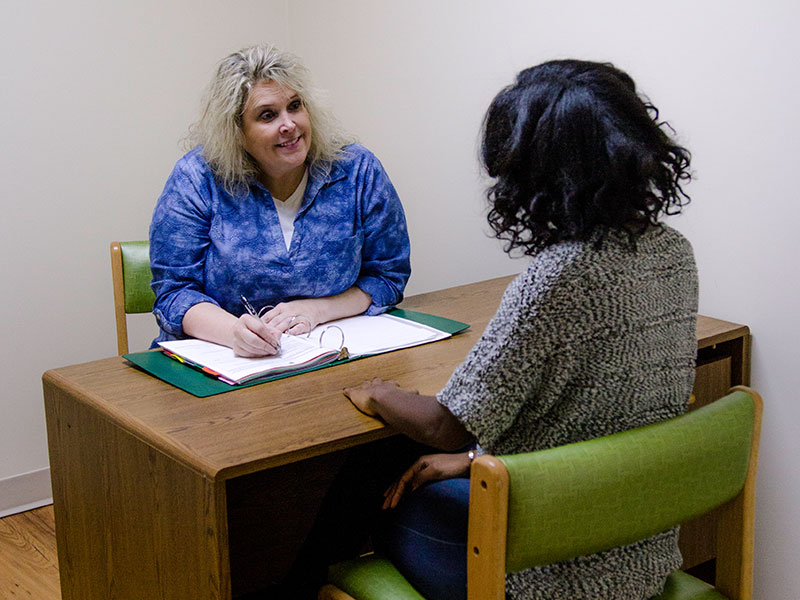At Covington Behavioral Health, individuals can receive expert care delivered by a team of compassionate and experienced professionals. With the help of our center’s dedicated treatment team, it is possible to learn to manage PTSD symptoms and live a healthier, happier life.
PTSD Treatment
Learn more about PTSD treatment at Covington Behavioral Health in St. Tammany Parish
Posttraumatic stress disorder, or PTSD, is a type of mental health disorder that occurs after a person has been exposed to one or more types of trauma. Posttraumatic stress disorder can disrupt a person’s thoughts, emotions, and behaviors. Symptoms that are associated with PTSD can include recurrent and involuntary distressing memories, nightmares related to the traumatic event, intense psychological distress when reminded of the trauma, flashbacks, and other painful experiences. If not properly treated, symptoms of PTSD can last for decades, or can recur in response to reminders of the original trauma or following exposure to new trauma.
At Covington Behavioral Health, located in Covington, LA, we understand how posttraumatic stress disorder can affect virtually all areas of a person’s life, and we have considerable experience working with people whose lives have been disrupted by PTSD. Our experience and research have allowed us to develop specialized programming at our center that provides comprehensive solutions for adolescent and adult patients who are struggling with PTSD.
How to Help a Loved One
Helping a loved one get treatment for PTSD
If someone that you care about has developed posttraumatic stress disorder, then you already know how painful this experience can be, both for the afflicted individual and those who care about him or her. What you may not realize is that you can play an essential role in getting your loved one the help that he or she needs.
First, it is important to understand that PTSD may manifest with a variety of symptoms. Just as there is no universal way that all people respond to trauma, neither is there a single all-encompassing description of what every person who has PTSD will go through. You will want to educate yourself about the nature of PTSD, but you should not expect to come away with a definitive picture of exactly what your loved one is experiencing.
Of course, the best way to get insights into the specific ways that PTSD is impacting your loved one is to observe, interact with, and talk to him or her. You may not feel comfortable bringing up the subject, but your loved one knows that he or she is in pain; attempting to talk about the problem will not make it worse. The nature and severity of your loved one’s symptoms will impact his or her ability to accurately and completely describe what he or she is going through, but the information that he or she provides will be invaluable in your efforts to get him or her into treatment at a hospital or center specializing in PTSD.
There is no such thing as a perfect treatment center or hospital; instead, your goal should be to find the facility, center, or hospital that seems to be the best fit for your loved one. By researching PTSD, looking into types of treatment that have benefited others, and understanding the specific ways that your loved one has been affected, you will be in an ideal position to identify programs that appear to be best suited to your loved one’s unique strengths and needs.
Your next step will depend upon how willing your loved one has been to talk about his or her symptoms, and how receptive he or she has been to the idea of getting treatment at a hospital or center for PTSD. If he or she realizes that help is a necessity, then you should focus on providing the logistical support (making appointments, providing transportation, arranging for childcare, etc.) that will get your loved one into treatment as quickly as possible. If, however, he or she has been resistant to suggestions regarding professional help, you may need to consult an expert on how best to proceed. The treatment centers or hospitals that you have been considering should be able to provide you with information on how to handle this challenge.
Of course, getting your loved one into treatment at a hospital or center is just one step in the long process of recovering from PTSD. Your loved one will need your support before, during, and after he or she completes the residential phase of recovery. Be sure that you are ready, willing, and able to provide that support.
Why Consider Treatment
Why consider treatment for PTSD at Covington Behavioral Health in St. Tammany Parish
An individual who develops PTSD but does not receive proper professional care at a hospital or center for PTSD is at increased risk for myriad problems in virtually all areas of his or her life. The psychological pain and altered behavior patterns that are characteristic of posttraumatic stress disorder may make it difficult for an individual to perform to expectation in school or at work, which can lead to academic failure, job loss, and chronic unemployment. PTSD symptoms can have a drastic impact on a person’s ability to establish and maintain healthy interpersonal relationships, which can result in family discord, strained friendships, and damaged professional relationships. PTSD symptoms such as sleep disruptions, exaggerated startle response, hypervigilance, and a tendency to engage in reckless or dangerous behaviors can put a significant strain on an individual’s body and mind. Unfortunately, many people who develop PTSD but who do not get effective care for their disorder turn to alcohol or other drugs as a means of self-medicating or numbing themselves to their ongoing psychological pain. Of course, substance abuse only expands the potential negative outcomes that an individual may experience. Without proper care, people with PTSD may withdraw from family and friends, engage in aggressive or violent behaviors, experience diminishing self-esteem and a declining sense of self-worth, and consider or attempt suicide. Yet with the effective comprehensive care that is available at Covington Behavioral Health, these negative outcomes can be avoided, existing damage can be addressed, and the individual can become empowered to live a much healthier and happier life.
Types of Treatment
Types of PTSD treatment offered at Covington Behavioral Health in St. Tammany Parish
Covington Behavioral Health is a 104-bed residential treatment center that provides personalized, comprehensive care for adolescents ages 10-17 and adults age 18 and older who have experienced acute changes in their emotional and mental well-being and need psychiatric stabilization.
At Covington Behavioral Health, care for people who have been diagnosed with posttraumatic stress disorder is provided by multidisciplinary teams of talented and dedicated professionals, including psychiatrists, medical psychologists, nurses, nurse practitioners, social workers, counselors, activity therapists, and mental health technicians. Among the members of our center’s staff who have specialized training are our full-time staff dietitian, social workers who are certified in gerontology, and physicians certified in forensic psychiatry and addictionology.
The care that our patients receive at our center incorporates a variety of treatment techniques and therapeutic modalities, including cognitive behavioral therapy (CBT) and dialectical behavior therapy (DBT). We place a premium on conducting thorough assessments on each patient at Covington Behavioral Health to ensure that we are able to develop individualized treatment plans that address each person’s specific strengths, needs, and treatment goals.
Each patient’s time at Covington Behavioral Health will be a unique experience based upon his or her specific strengths and needs. Depending upon those unique factors, a patient’s treatment at our center may include the following elements:
Medication management: Some individuals with PTSD may benefit from having certain prescription medications incorporated into their treatment plans. Covington patients who meet this description will have the opportunity to meet with our psychiatrist and nursing staff on a regular basis at our center to receive medication management services.
Detoxification: Covington Behavioral Health is not a substance abuse treatment center; however, we do understand that prospective patients may have struggled with substance abuse in addition to their challenges with posttraumatic stress disorder. To best serve these individuals at our center, we provide detox services for individuals who been abusing alcohol, prescription painkillers, and certain other drugs. After they have rid their bodies of the substances that they have been abusing, detox patients will transfer directly into residential treatment to receive care for their mental health disorders.
Individual therapy: Patients in the inpatient program may meet with a member of our social service staff (LCSW, LMSW, LPC, or PLPC) or nursing staff (RN or LPN) for individual therapy as needed. Individual therapy allows patients to address issues that they may be hesitant to bring up during group sessions, provides them with one-on-one feedback and guidance from experienced professionals, and helps them to develop effective skills for managing the symptoms of PTSD.
Group therapy: Group therapy sessions are fundamental elements of treatment at Covington Behavioral Health. Group therapy provides a structured yet dynamic environment in which participants can share their insights and experiences, learn from the contributions of fellow patients, and practice healthy interpersonal skills such as effective communication, empathy, and giving and receiving support. The following are among the groups that a patient who is being treated for posttraumatic stress disorder at our center may participate in during his or her time at Covington:
- Activity groups
- Creative therapy groups
- Dietary groups
- Process groups
- Psychoeducation groups
Group therapy sessions, which are typically offered at least five times during each treatment day at our center, are led by nurses, activity therapists, mental health technicians, and members of our social services staff.
Family therapy: At Covington Behavioral Health, we understand that an individual’s struggles with PTSD may impact his or her entire family. With family therapy, loved ones of Covington patients have the opportunity to address how they have been affected by the patient’s mental health problems, learn how to strengthen family bonds and improve intra-familial relationships, and develop the skills that will allow them to provide the best possible support as their loved one continues in recovery following the residential phase of his or her treatment. Family therapy sessions at Covington Behavioral Health are typically conducted by the patient’s case manager and may be scheduled on an as-needed basis or by request.
Discharge planning: We provide robust discharge planning services to ensure that each patient and his or her family has a thorough plan that identifies the referrals, community-based services, and other support services that will put the patient in the best position to maintain and improve upon the progress that he or she made while in treatment for PTSD at Covington Behavioral Health.
At Covington Behavioral Health, our ultimate goal is to provide the focused, effective, and personalized care that can improve the quality of life for all who are entrusted into our care. For more information about our services, please do not hesitate to contact us at your convenience. We look forward to answering all of your questions and helping you determine if Covington Behavioral Health is the perfect place for you or your loved one.





